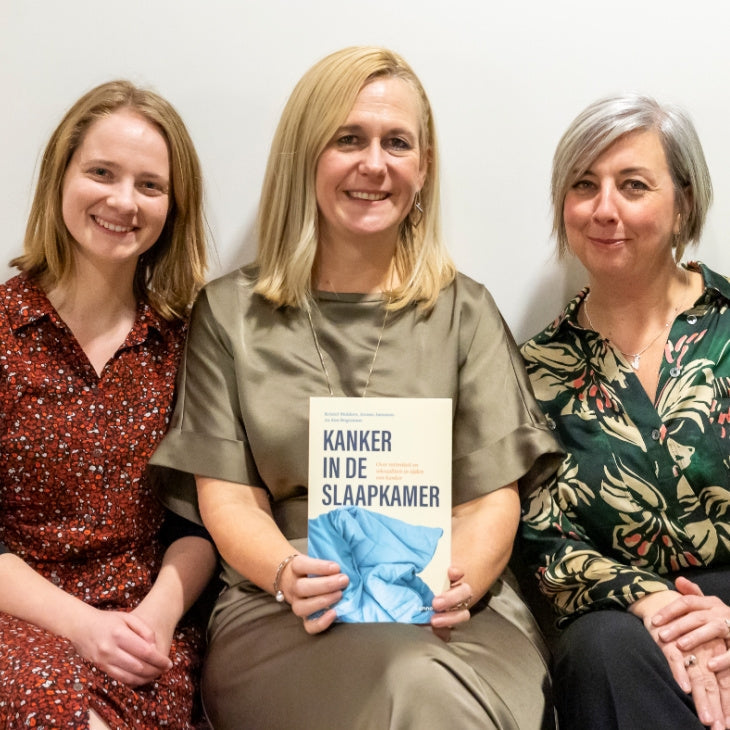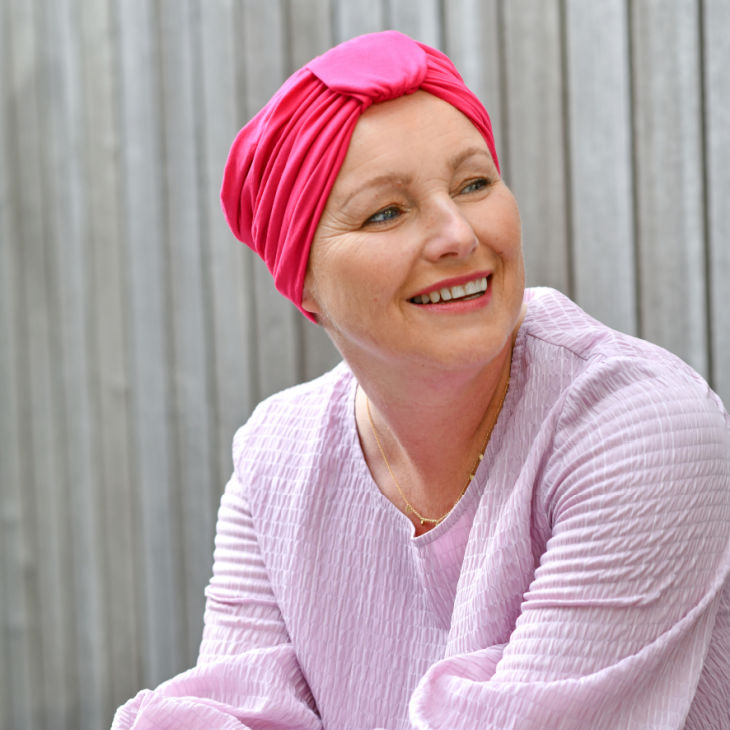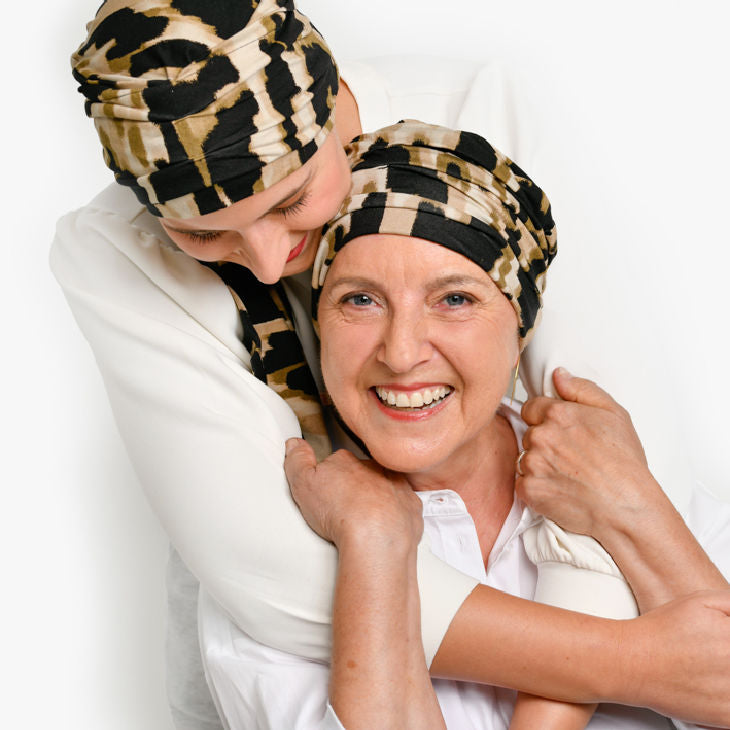Sexologist Kristel Mulders has been guiding cancer patients for years in exploring their sexuality during and after treatment. In her book 'Kanker in de slaapkamer' (trad. Cancer in the Bedroom), written with the help of oncology psychologist Jorane Janssens and oncology coach Ann Bogemans, she finally brings this important topic into the open. Packed with accurate information and practical tips, the book invites people to rediscover intimacy and sexuality after cancer. For Rosette La Vedette, Kristel shares her expert insights on 8 common concerns about cancer and sex — and how to address them.
#1 Sex after cancer will never be the same
Kristel Mulders: “I try to avoid absolute terms like never, but for many people — roughly eighty percent — sexuality does feel different during and after cancer treatment. This is often due to changes in the body caused by surgery or other treatments. It’s not just about how the body looks; it’s also about how it feels. Chemotherapy, hormone therapy, or radiation can cause parts of the body to feel different or even lose sensitivity entirely. Fatigue — sometimes lasting for years after treatment — and fear of cancer recurrence also play a major role in how someone experiences sexuality.”
#2 Where did my libido go?
“A decrease in sexual desire is very common — and completely understandable. Chemotherapy has a significant impact on your hormone balance, which normally regulates sex drive. Anti-hormone therapy can also lower libido. This loss of desire happens naturally because your body’s chemistry has changed. The key is to adapt and explore what still works for you. Plan intimate moments together instead of waiting for spontaneous desire. Take your time and focus on responsive desire: what activities or closeness can spark arousal and intimacy between you?”
#3 During cancer treatment, I’m focused on surviving — not on sex
“There are usually two reactions when it comes to sexuality during cancer treatment. Some patients — and even their partners — completely avoid sexual activity. Partners may be exhausted themselves or afraid of burdening their loved one with sexual needs. Others continue to be sexually active because intimacy feels like a comforting release and a way to relax and connect. For those whose sex life has paused, I emphasize that it won’t restart automatically after treatment. It requires a conscious effort to rediscover that part of your life. Most people find that intimacy — or at the very least, closeness — is important for their overall quality of life.”
#4 It’s all in my head
“Sexuality is about two things: sexual function and sexual experience. The functioning part — how the body physically responds — really does change after cancer treatment. Spontaneous desire decreases, arousal takes longer, and orgasms may feel less intense. It’s essential for patients to understand that these changes are normal. The experiential side is just as important. Fear of recurrence, for example, can leave little mental space for pleasure or relaxation. Physical scars or changes to the body can also create insecurities and affect self-image.”
#5 Things will never be okay again
“Sexuality may never be exactly the same as it was before cancer — but it can absolutely be fulfilling again. It’s all about exploration. Reconnect with your own body first. Slowly experiment to find out what feels good — whether it’s certain touches, positions, or times of day. With patience and open-mindedness, you can create a new and positive sexual experience. Some of my patients even say their sex life improved after cancer, because they’ve learned to be more intentional and mindful about intimacy.”
#6 What if I become infertile?
“For young adults with cancer, concerns about fertility add another emotional layer to their sexual well-being. When someone has to put their dream of having children on hold — or let it go entirely — sex can become a source of grief rather than pleasure. This is why clear information from healthcare providers is crucial. Patients should understand the potential impact of their treatment on fertility and the available options, such as freezing sperm or protecting the ovaries during radiation.”
#7 I’m single and afraid to date
“When healthcare providers do discuss ‘cancer in the bedroom,’ it’s almost always focused on people with partners. But singles deserve accurate information too. When doctors avoid the topic out of discomfort, it can feel incredibly isolating. For singles, there are plenty of ways to rediscover pleasure and feel connected to your body again. There are also strategies for explaining to a new partner that your body might look or feel different after treatment. Remember: sexuality isn’t about having a perfect body — it’s about honest communication and building trust.”
#8 Doctors never bring up sex
“Sadly, this is often true. It’s strange when you think about it — hair loss and how to cope with it are openly discussed, but sexual side effects are often left unspoken. Yet talking about these issues is what helps normalize them. For instance, a woman might never know that chemo can cause vaginal dryness if her doctor doesn’t mention it. She also wouldn’t know there are products like vaginal moisturizers that can help. If your care team doesn’t raise the subject, you can start the conversation yourself by saying: ‘We’ve discussed many side effects of my treatment. Could my treatment also impact my sexuality or intimacy?’ This simple question encourages healthcare providers to address a vital, yet often overlooked, aspect of cancer care.”











Leave a comment
All comments are moderated before being published.
This site is protected by hCaptcha and the hCaptcha Privacy Policy and Terms of Service apply.